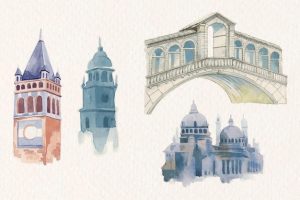
Reviving of cultural heritage: Social and Economic Empowerment of Rural Areas
Tourism is one of the main sectors of the European economic system. It has a great impact on the development of territories and on the innovation models of entrepreneurial activity. The pandemic emergency that alarmed the entire world population in the first months of 2020, has had serious repercussions on the entire European tourism system. The statistics released by the “UN World Tourism Organization” indicate a 60% drop in international tourism, furthermore the global travel industry has suffered losses between 840 billion and 1 billion EUR.The pandemic, which has hit the major European capitals, has further underlined the social, economic and cultural imbalances of the internal rural areas. These villages are symbols of a minor but widespread historical, cultural and environmental heritage. In recent years a lot of associations, formed by social innovation movements, were created in order to protect and defend the heritage richness of these places. Re-Cultural Heritage seeks to improve the cohesion of the local communities through educational paths that support the personal development of teachers, citizens and minorities towards employment and labor market integration. Furthermore, the intent is to build a strategy of economic and employment development linked to quality tourism and to underline the role that a proper appreciation of cultural heritage can play in the economic regional development.
The project addresses the following needs:
1- The increasing abandonment of rural areas, caused by urbanization and the lack of job opportunities, especially for younger generations.
2- The necessity to include minorities in the economic system by developing training paths, in order to access employment and interaction at the social level.
3- Promoting awareness on the importance of cultural heritage in innovative and modern terms for the creation of a sustainable local economy.
4- Training adults in the field of restoration of the historical, cultural and environmental heritage in order to create new jobs and to improve the landscape and the conservation of cultural places.
The objectives of the project are;
1- Improved employability capabilities in order to facilitate the opening-up of youth work to cross-sectoral cooperation.
2- Increase adult competencies related to job profiles especially in the social, touristic and artistic sector
3- Guarantee new approaches to better support competitiveness in order to fill the lack of job opportunities, of these rural areas, that is pushing an entire generation in the major cities or abroad.
4-Creating networking activity on education, entrepreneurship, leadership and equal opportunities.
5- Improve practices to cater for the needs of vulnerable groups, with fewer opportunities in order to address gaps in learning performance caused by regional and socioeconomic inequalities and to facilitate access to different labor markets.
6- Increasing the employment opportunities adapting them to the post-Covid-19 demand.
7- Increasing the sense of inheritance and historical values, especially in the rural areas where the heritage is not seen as a means that can be used for their own prosperity.
OUTPUTS